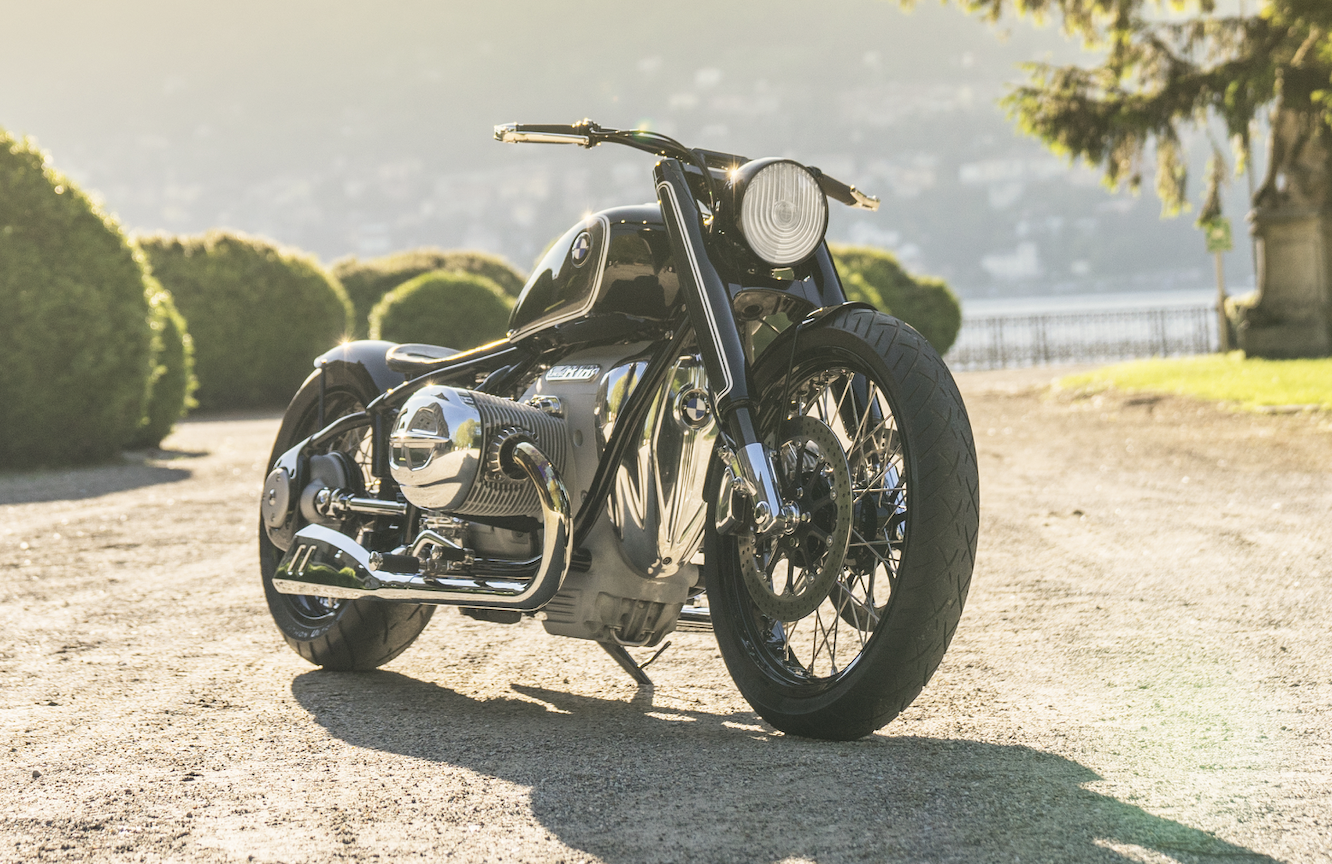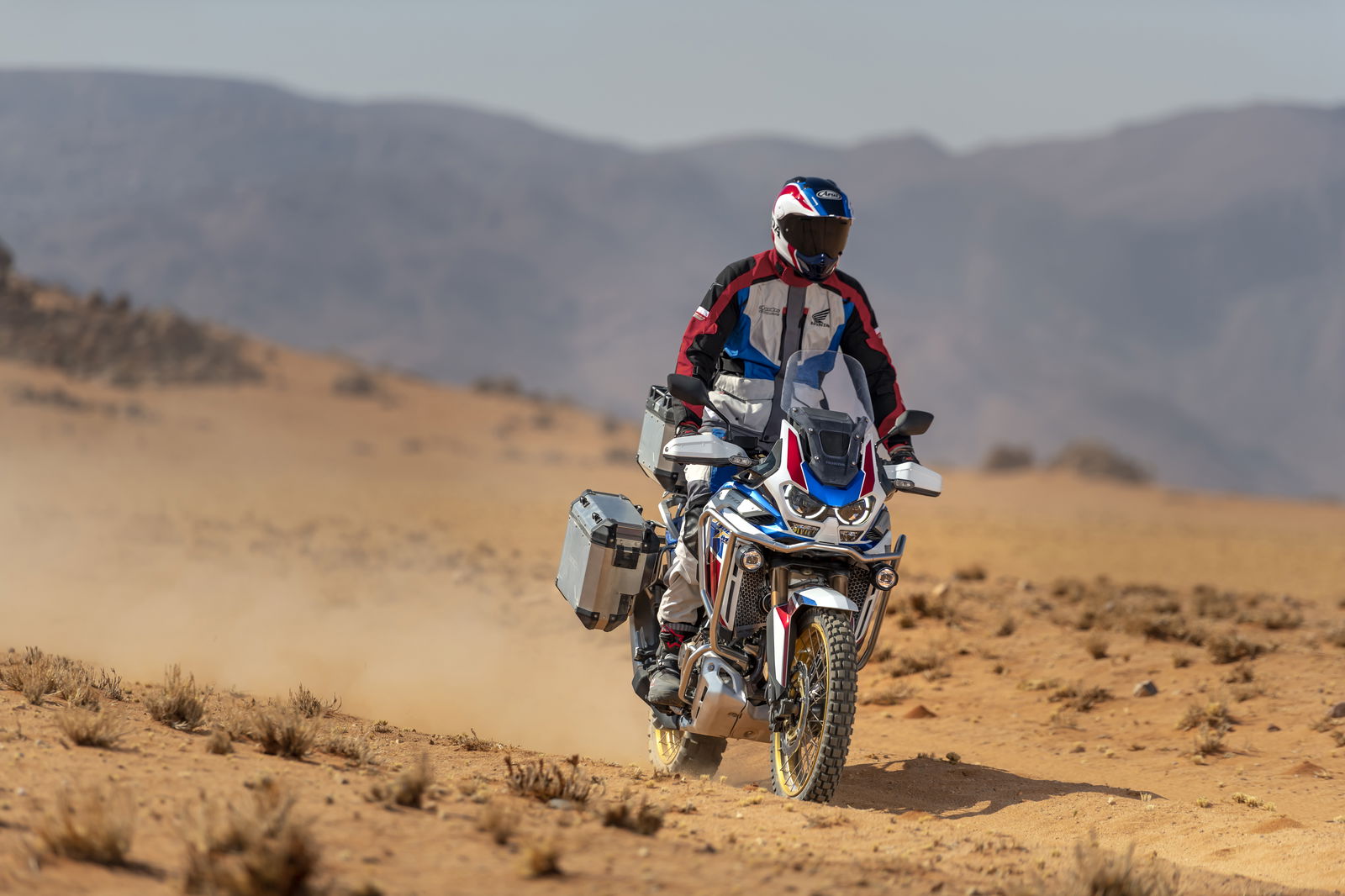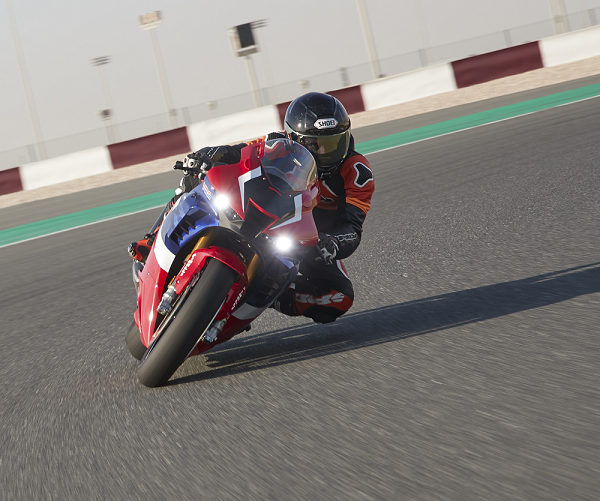Honda CRF1100L Africa Twin spec, details and technical information
The Honda CRF1100L Africa Twin has landed. It’s lighter, leaner, slimmer and bristling with tech. Here’s the full details

THE 2020 Honda CRF1100L Africa Twin has landed! Gone is the 998cc mill and (as we’ve known for some time), in its place is a revised 1084cc unit. To take the fight to the ADV sector it’s bursting with tech, riding modes and lots more. If Adventure is on your agenda for 2020 – read on.
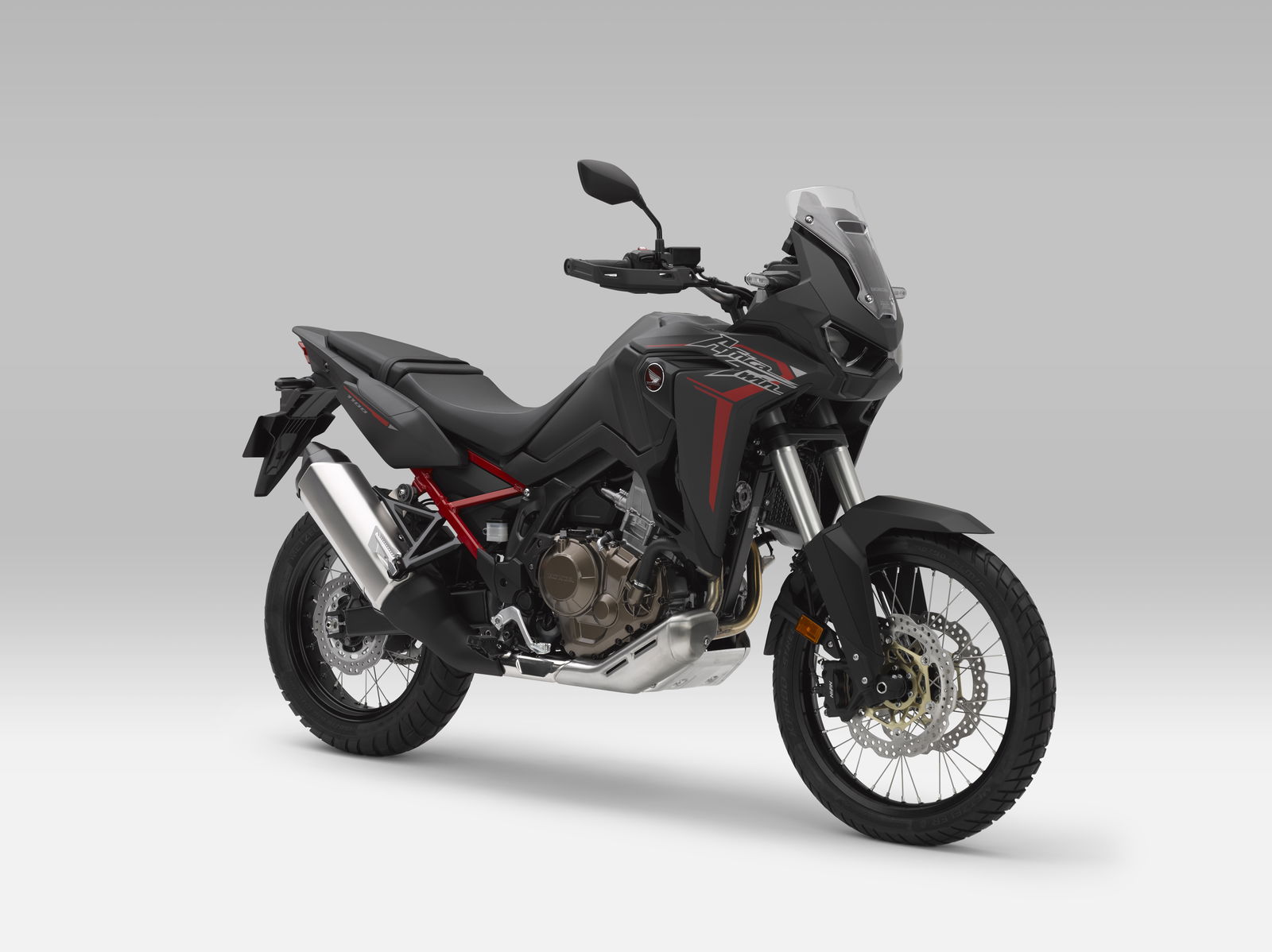
What’s new on the 2020 Honda CRF1100L Africa Twin?
It’s clear from the press information we’ve received, the new Africa Twin is much more than a face-lift. The new model is slimmer and lighter thanks to a new frame, subframe and CRF450 inspired swingarm design. The engine has been reworked, giving 7% more torque and 6% more peak power, hitting Euro5 regulations in the process. The new bike also gains a six-axis IMU, TFT touch screen, Apple CarPlay and Bluetooth Connectivity – good to have when you’re in the middle of the Sahara.
For a full and thorough rundown of the standard Africa Twin Adventure Sports features and specs, click here.
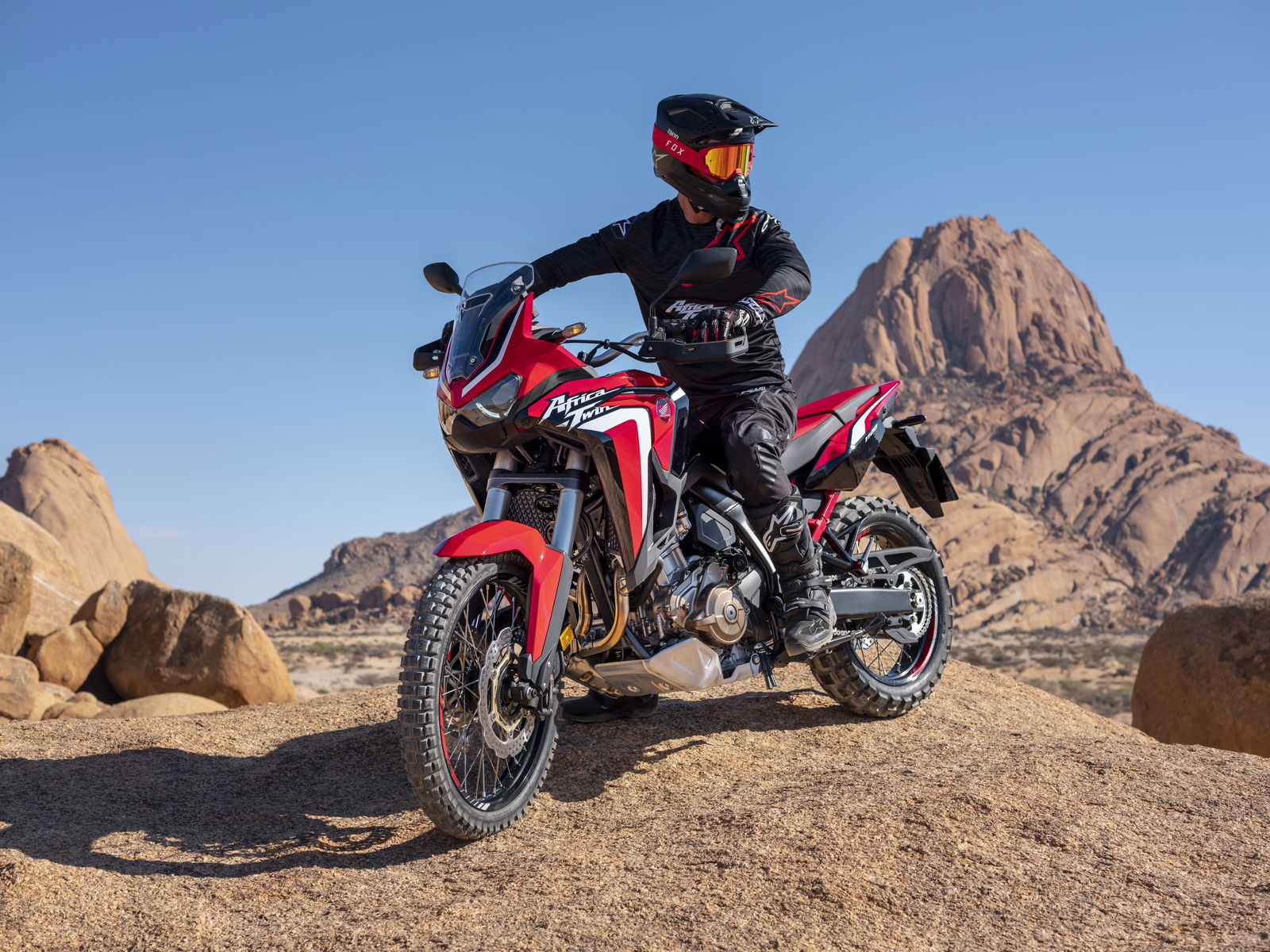
Honda CRF1100L Africa Twin Engine
• Capacity rises to 1,084cc giving 101HP and 105Nm peak torque
• New cylinder head, valve timing and lift, throttle body and exhaust
• Manual transmission ratios and gear material optimised, saving weight
• Exhaust Control Valve (ECV) for improved low-rpm sound and high-rpm performance
To create the CRF1100L engine, Honda have kept the same basic architecture as before, dragging the stroke from 75.1mm to 81.5mm and keeping the bore at 92mm. The resulting 1,084cc mill has a compression ratio of 10.1:1 and pushes out 101hp at 7,500rpm and 105Nm (77ft-lb) at 6,250rpm. Honda is claiming that the new non-DCT engine is 2.5kg lighter than before, with 2.2kg shaved off the weightier DCT version. The slimming here is mostly thanks to aluminium cylinder sleeves and redesigned engine casings.
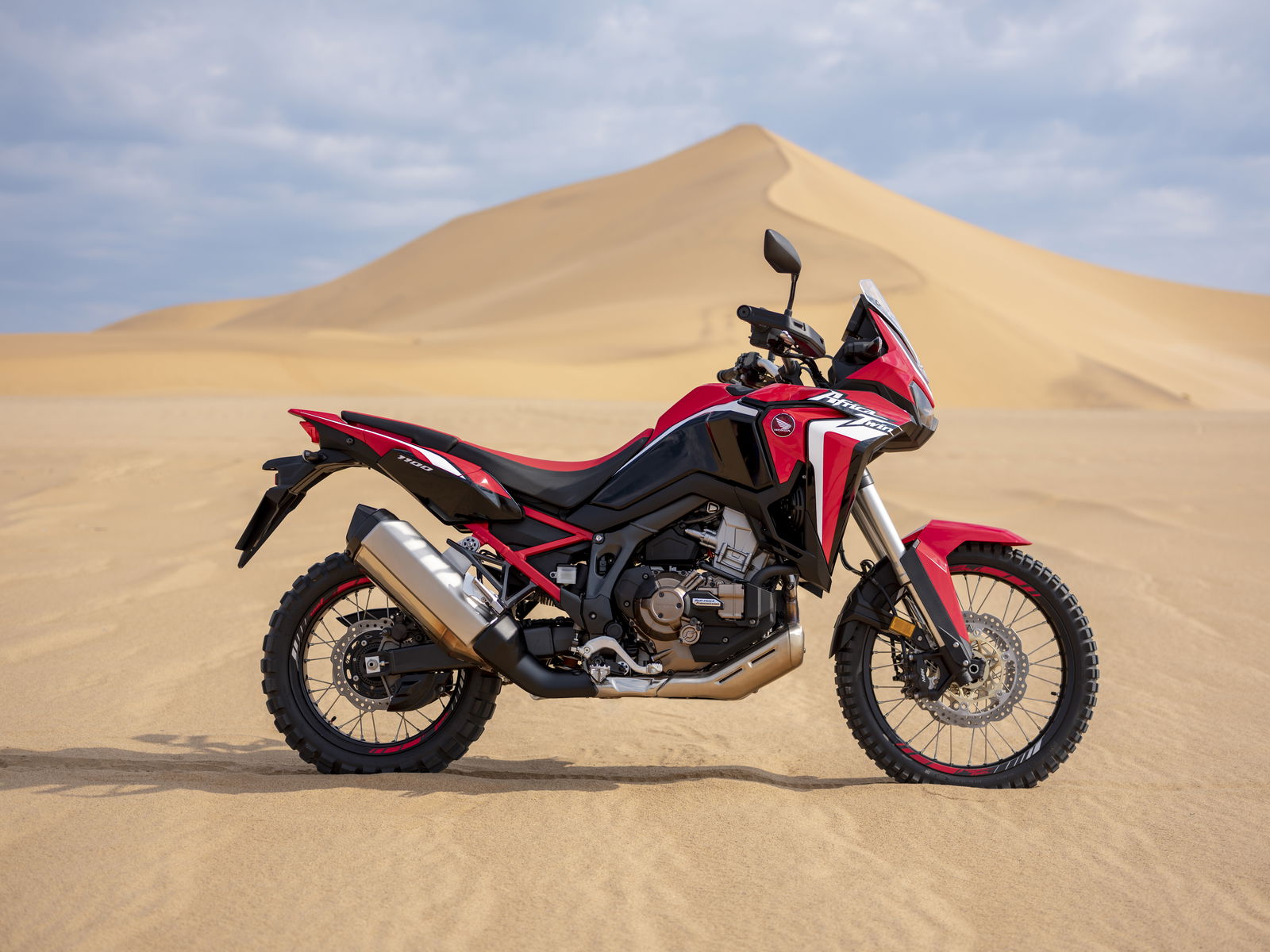
Fuelling has also been tweaked, with a new cylinder head design and a larger 43mm throttle body and smoother air intake profile. The ECU setting is also new, with reworked injector angles to deliver a more direct spray into re-shaped twin-spark combustion chambers. To help the engine deal with increased gas flow, the exhaust now features a CBR1000RR inspired exhaust control valve that is designed to enhance performance and efficiency, now opening at a higher RPM and improving the exhaust note low-down – what’s not to love?
Honda CRF1100L Africa Twin electronics
• IMU-managed HSTC intervention levels optimised for off-road use
• Wheelie Control features 3 levels and IMU management
• OFF-ROAD joins the default riding modes TOUR, URBAN and GRAVEL
• Two USER modes allow for complete riding modes customisation
The 2020 Africa Twin’s electronics have had a proper going over, with the Honda Selectable Torque Control (HSTC) now feeding off the IMU, with four power levels and three levels of electronic engine braking. There are still seven levels of HSTC, but each level’s amount of intervention has been optimised to work with real-time input (yaw/roll angle and rate) from the IMU. The spacing of the levels has been optimised to allowing the rider a finer choice of the amount of rear tyre slide for off-road riding. HSTC can also be turned off completely.
Wheelie Control is another new feature. Again, with the IMU measuring pitch angle and rate, and controlling engine torque via TBW, the rider can choose between 3 levels of input. Level 1 allows for intended wheel lift but suppresses any sudden movement. Level 3 stops any front wheel elevation and level 2 is mid-way between the two. Wheelie Control can also be turned off completely.
There are four default riding mode settings: TOUR, URBAN, GRAVEL and OFF-ROAD to cover most riding conditions and situations plus two customisable USER settings. Even within the default riding modes, it’s possible to change some parameters – HSTC between levels 1-7 (plus off), Wheelie Control between levels 1-3 (plus off) and DCT S mode shift pattern levels 1-3.
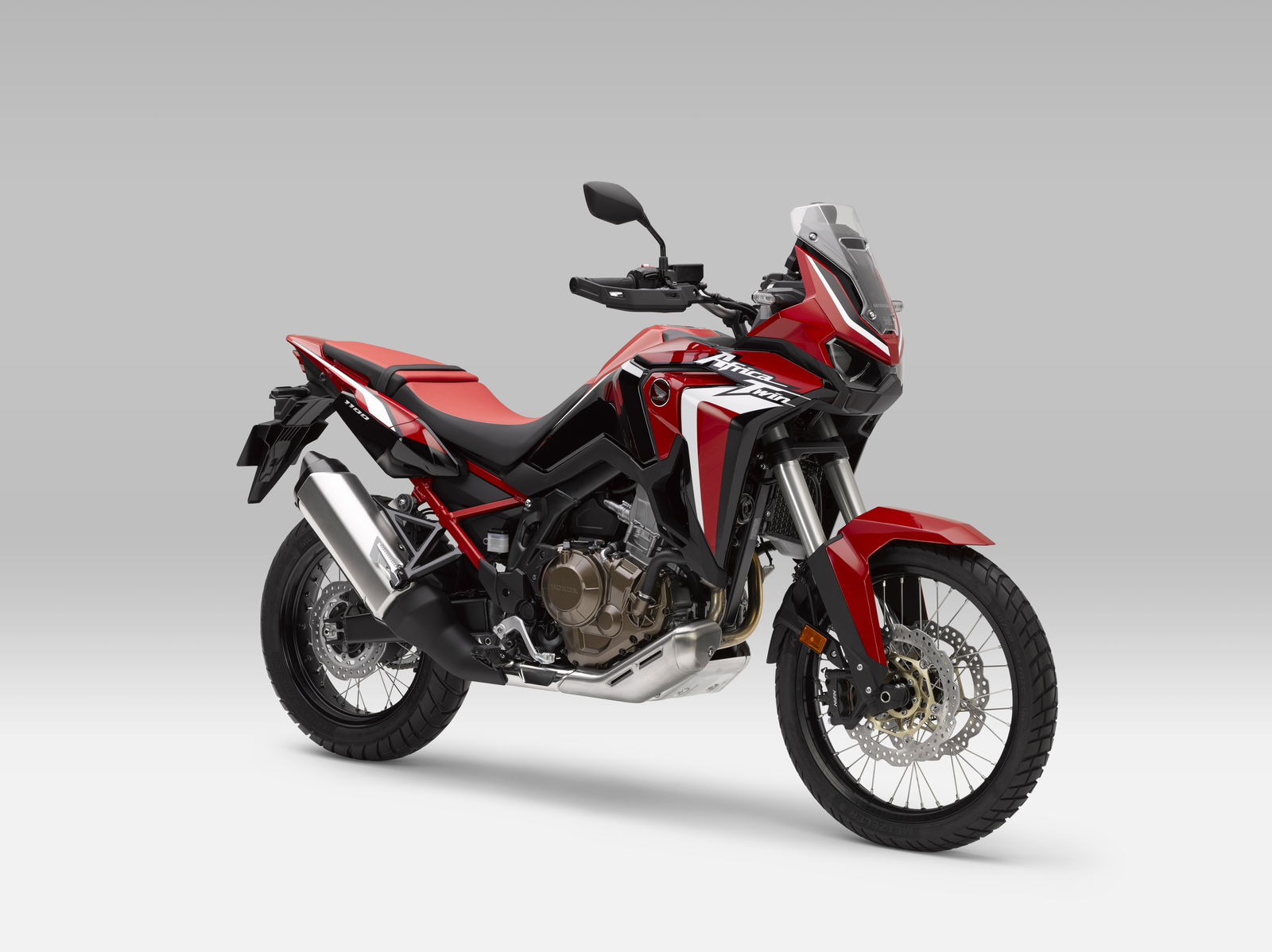
Honda CRF1100L Africa Twin riding modes
TOUR employs the highest level of Power (1), for touring loaded with pillion and luggage plus mid-range Engine Braking (2) with active on-road Cornering ABS.
URBAN suits wide-ranging riding requirements and uses mid-level Power (2) and Engine Braking (2) with active on-road Cornering ABS.
GRAVEL delivers the lowest level of Power (4) and Engine Braking (3). Cornering ABS is active with an off-road setting; in this setting, the rear brake ABS cannot be switched off.
OFF-ROAD uses lower-mid level Power (3) and the lowest amount of Engine Braking (3). Cornering ABS is active with an off-road setting; the rear brake ABS can be switched off.
USER 1 & 2 modes offer the rider a choice of two distinct personalized setups - choosing between Power levels 1-4 and Engine Braking 1-3, plus HSTC, Wheelie Control and ABS (on-road/off-road) parameters. USER 1 starts out with level 2 Power and Engine Braking, USER 2 uses level 4 Power and 3 Engine Braking.
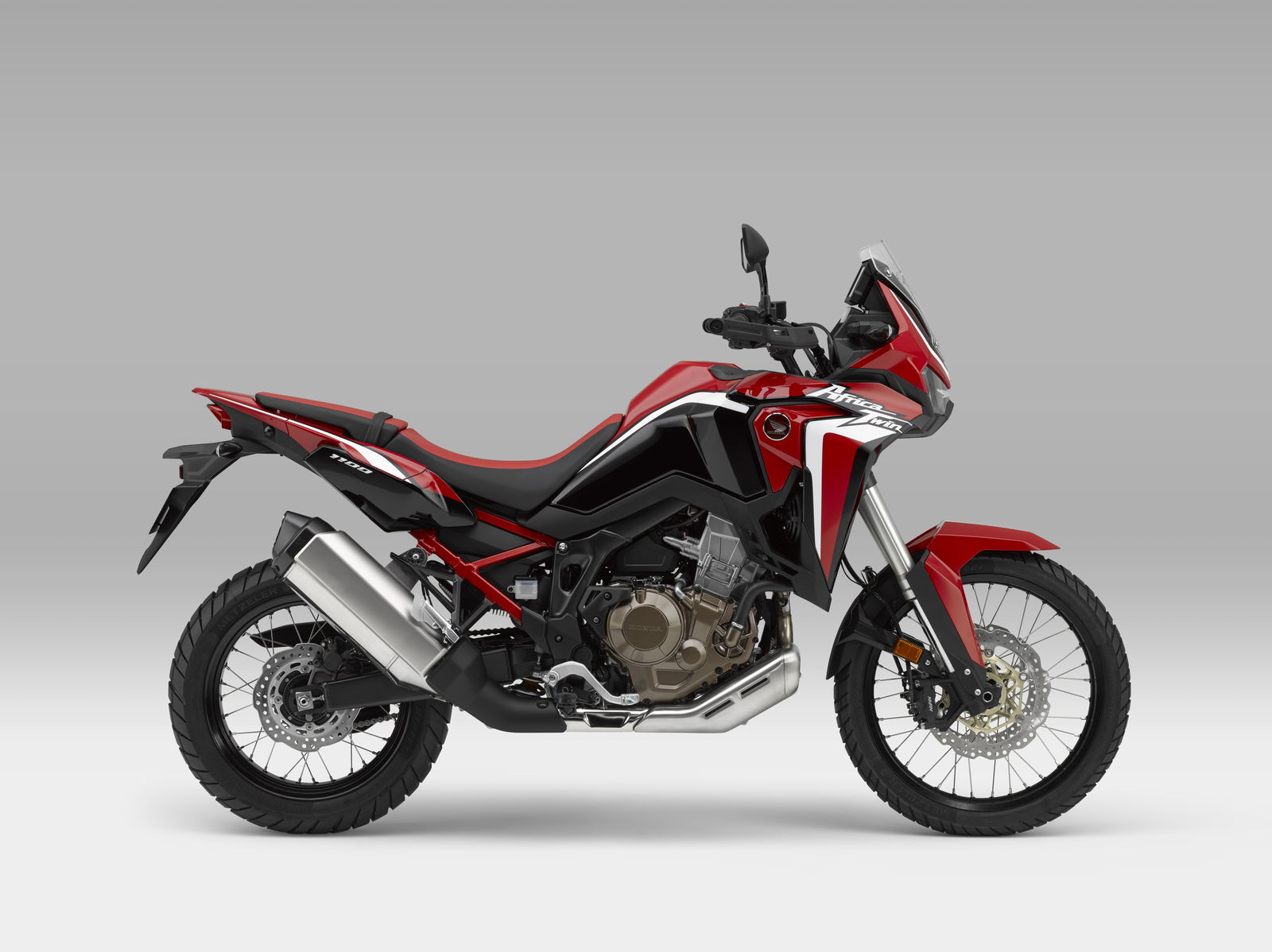
Honda CRF1100L Africa Twin specs
ENGINE | |
Type | SOHC liquid-cooled 4-stroke 8-valve parallel twin with 270° crank and Uni-cam |
Displacement | 1084cc |
Bore & Stroke | 92mm x 81.5mm |
Compression Ratio | 10.1:1 |
Max. Power Output | 75kW at 7,500rpm |
Max. Torque | 105Nm at 6,250rpm |
Noise Level | 73dB |
Oil Capacity | 4.8/4.3 (5.2/4.7 DCT) |
FUEL SYSTEM | |
Carburation | PGM-FI |
Fuel Tank Capacity | 18.8L |
CO2 Emissions | 112g/km MT 110g/km DCT |
Fuel Consumption | 4.9L/100km (20.4km/L) MT 4.8L/100km (20.8km/L) DCT |
ELECTRICAL SYSTEM | |
Starter | Electric |
Battery Capacity | 12V-6Ah Li-ion battery (20hr) |
ACG Output | 0.49 kW/5,000rpm |
DRIVETRAIN | |
Clutch Type | Wet, multiplate with coil springs, aluminium cam assist and slipper clutch DCT – 2 wet multiplate clutches with coil springs |
Transmission Type | 6 speed manual (6 speed DCT) |
FRAME | |
Type | Semi double cradle |
CHASSIS | |
Dimensions (L´W´H) | 2330mm x 960mm x 1395mm |
Wheelbase | 1575mm |
Caster Angle | 27.5° |
Trail | 113mm |
Seat Height | 850/870mm (low seat option 825mm, high seat option 895mm) |
Ground Clearance | 250mm |
Kerb Weight | 226kg (DCT 236kg) |
SUSPENSION | |
Type Front | Showa 45mm cartridge-type inverted telescopic fork with dial-style preload adjuster and DF adjustments, 230mm stroke |
Type Rear | Monoblock aluminium swing arm with Pro-Link with Showa gas-charged damper, hydraulic dial-style preload adjuster and rebound damping adjustments, 220 mm rear wheel travel |
WHEELS | |
Type Front | 21M/C x 2.15 wire spoke with aluminium rim |
Type Rear | 18M/C x 4.00 wire spoke with aluminium rim |
Rim Size Front | 21" |
Rim Size Rear | 18" |
Tyres Front | 90/90-21M/C 54H (tube type) (Bridgestone Battlax Adventurecross Tourer/ AX41T Metzler Karoo Street) |
Tyres Rear | 150/70R18M/C 70H (tube type) (Bridgestone Battlax Adventurecross Tourer/ AX41T Metzler Karoo Street) |
BRAKES | |
ABS System Type | 2 channel with IMU |
Type Front | 310mm dual wave floating hydraulic disc with aluminium hub and radial fit 4-piston calipers and sintered metal pads |
Type Rear | 256mm wave hydraulic disc with single piston caliper and sintered metal pads. 2-channel with rear ABS OFF mode. |
INSTRUMENTS & ELECTRICS | |
Instruments | LCD Meter, TFT 6.5inch touch panel multi information display |
Security System | Immobiliser, security alarm (optional) |
Headlight | LED |
Taillight | LED |
Electrics | Daytime running lights, Bluetooth audio and Apple Carplay, USB socket, auto turn signal cancel, cruise control, emergency stop signal, IMU, HSTC, wheelie control |
